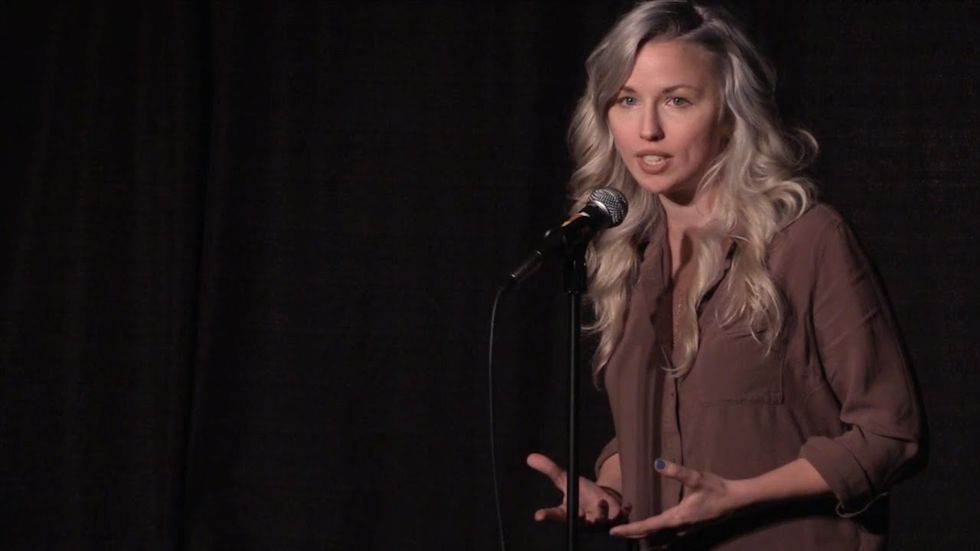Content Warning: mentions of sexual violence, revictimization
"The person who did this to you is out there, somewhere choking on the glass of his chest, it is a windshield, and his heart is a baseball bat saying regret this, regret this."
While not all men are perpetrators and not all perpetrators are male, we stan you, Sierra DeMulder.
In DeMulder's slam poem "Paper Dolls," she discusses how women are taught that they are fragile human beings and that they must act as such. Women are at high risks of sexual abuse and rape — one in three will experience it, DeMulder says — and according to these societal "rules" that people impose upon survivors they talk to, standards for how women must react say that they must not be too strong, that they must be ready to fall apart, and that when they cry, they must cry beautifully.
Barf.
DeMulder continues to say that after these experiences, women are supposed to feel that they have been stolen from, that they are empty and dirty and crumbling.
While all feelings are valid, I agree with DeMulder's most important points at the end of her poem which discuss how these women are not broken — their perpetrators are. Our bodies are our own — not anyone else's -- and they are strong and whole. As DeMulder says, our bodies are not hand-me-downs. We are whole.
The above quotation is from this poem and it's incredibly important. After we've been hurt by someone — of any gender — feelings of brokenness and lost may come like second nature.
Maybe you're feeling powerless from an assault. Maybe you're still hurt over a broken relationship in which you felt mistreated. Maybe you've had multiple instances like these over and over again. Maybe you don't fit the stereotype: maybe you're a man who's being abused at the hands of a woman. Maybe you're non-binary. Your story is just as valid.
Revictimization doesn't help. Revictimization explains why people who are victimized — through an assault, for example — are more likely to be victimized again, possibly through trying to regain control and have a better experience, out of a loss of self-worth and self-respect from maltreatment, or another reason. It's awful and under-discussed.
During these times, we have to remind ourselves that we are not the ones who are broken. We are not unloveable or the only ones hurting. We won't be lonely forever or never in control of our bodies again. These facts can be hard to remember, at least for me. I feel like when I'm hurt, the people who hurt me aren't hurting themselves.
This is not to say that I want other people to hurt. This is not to invalidate feelings of hurt.
My intention here is this: we are not alone. We are allowed to break down. We are allowed to "ugly cry." We are allowed to feel like victims instead of survivors. At the same time, it's okay to feel numb. It's okay to go on about your life without feeling fake or invalid. It's okay to find empowerment, to know you're worthy, to demand respect.
Because we are worthy and we will be respected and we do have control in some situations. We are not powerless or defined by what has happened to us. Justice will be attained even if it doesn't feel that way. When it doesn't feel that way, I remind myself that God is an advocate for us and that God will make the way for justice. When I feel powerless, I remind myself that God is not. God's plan is the best plan, even if we don't see why at first.
We will see why, if we look. In John 13:7, Jesus says "You do not realize now what I'm doing, but later, you will understand."
We will understand. We will overcome. We are strong and whole in the tears and the laughs. No one can take these things away from us. I want to end this the way DeMulder ended her slam poem:
"I will not watch you collapse."



































